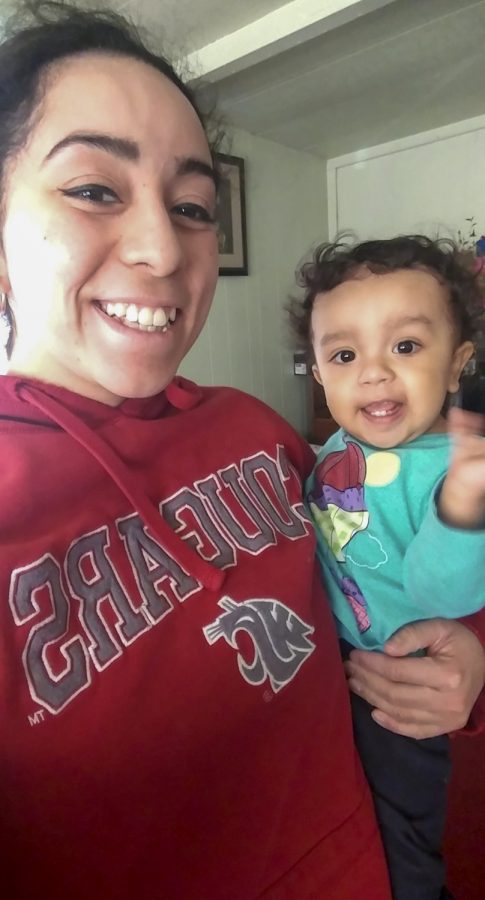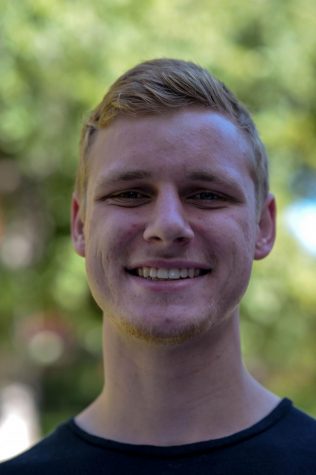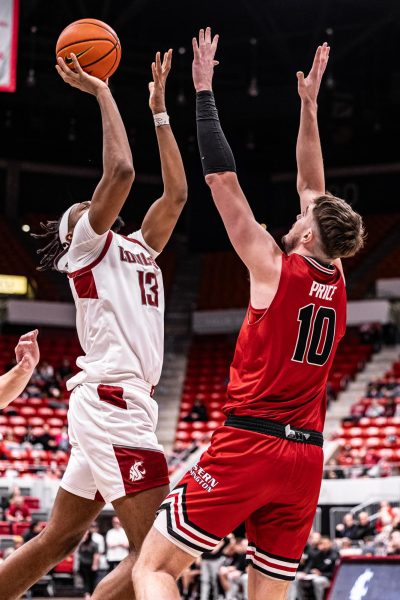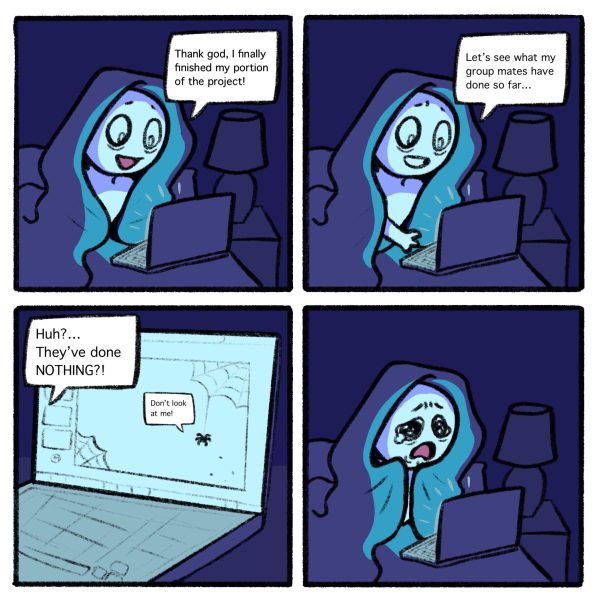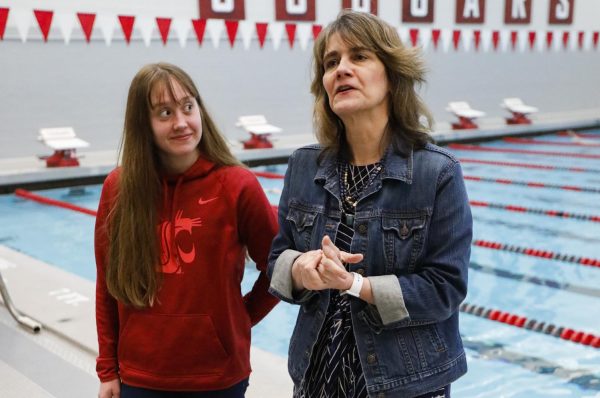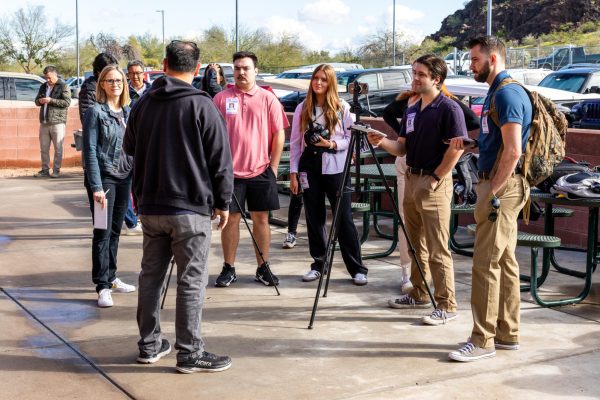‘[TRIO staff] definitely deserve more credit’
TRIO leaves lifelong impact on its members, provides countless resources to students from disadvantaged backgrounds
COURTESY OF ALEJANDRA CARRANZA
TRIO staff supported Alejandra Carranza during her pregnancy and even accompanied her in the delivery room.
March 4, 2021
WSU’s TRIO staff goes above and beyond any other student support program.
Lucila Loera, interim director for TRIO Student Support Services, said TRIO is designed to aid disadvantaged student’s journey to higher education. The 15 WSU TRIO programs stretch across three campuses and have different requirements.
TRIO is not an acronym, she said. The name refers to the original three programs that TRIO consisted of.
Not every student is the same, Loera said. Having multiple programs allows the staff to better cater to students’ needs.
“Everyone has potential and strength,” she said. “Sometimes it’s just needing the guidance or coaching to help you get there.”
The WSU Office for Access and Opportunity Food Pantry started in TRIO SSS, Loera said. She saw a student struggling with food insecurity and wanted to provide the resources to those in need. She often worries about not having enough resources to meet students’ needs.
Students can find the food pantry on the second floor of the Lighty Student Services Building. She said the Office of the Dean of Students accepts non-perishable donations.
Nancy Barraza, TRIO SSS clerical assistant, said TRIO offers various workshops that teach students about scholarships, financial aid, how to communicate professionally and much more. TRIO also provides support in terms of academic advising, tutoring, registration, graduation preparation and personal support.
“[TRIO staff] do go above and beyond,” Barraza said. “They definitely deserve more credit.”
Barraza is a first-generation student herself. She said after her first semester at WSU, she needed to take the spring semester off. Barraza realized how mentally unprepared she had been before going to WSU. She had never lived away from her parents and did not know the toll being alone would take on her health.
TRIO was there to support Barraza and keep her on track during her freshman year. If she needed answers, TRIO would find them even if they didn’t pertain to the adviser’s particular department.
Alejandra Carranza, TRIO SSS clerical assistant, said TRIO helped her flourish into who she is today. Without the program, her dreams of higher education would have stayed just that. Her parents immigrated from Mexico when they were just teenagers; they later birthed Carranza and her siblings.
Her family would go back and forth between the Yakima Valley and Bellingham, depending on the season. They worked in the fields, often picking cherries. She said her dream now is to earn her doctorate and retire her parents.
“What better gift to give your mom,” Carranza recalled her dad’s words, “than for you and your siblings to receive a higher education.”
Carranza is now a mother herself; she said she gave birth to her daughter while in Pullman. She found herself terrified and unprepared for the experience. She conveyed this to the TRIO staff, so they made a point of being there for her.
Both the TRIO director and the academic coordinator at the time stood by her side in the delivery room as she gave birth. They were there for her when she was alone and needed it most — even if it was not part of their job description, she said.
They even contacted each of Carranza’s professors after the birth to notify them of her expected absences, she said.
“Giving birth is a traumatic experience,” Carranza said. “They were there helping me through it.”
Many of Carranza’s siblings now attend WSU as well, and some are about to graduate. They, too, access the TRIO program. She said her long-term goal is to open her own nonprofit after completing her education.
Loera said the TRIO programs are open to undergraduate students, but there are positions available for graduate students who work. To enroll, you must be a WSU student, a U.S. citizen, demonstrate academic need and come from a disadvantaged background.
“There’s staff more than willing and happy to connect with any student,” Loera said.


